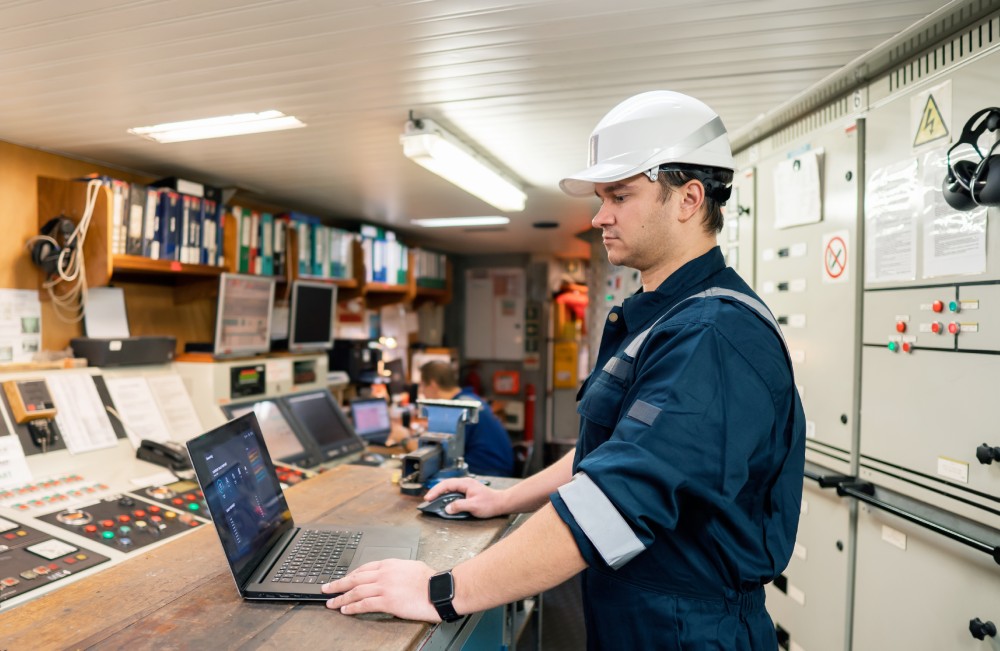By integrating vessel data and turning it into substantial efficiency gains, Opsealog sees itself as the »performance partner« of shipowners and charterers . By Felix Selzer[ds_preview]
In his duty time as officer at sea, Arnaud Dianoux, Managing Director and Founder of French company Opsealog, understood that the maritime sector could improve quite a bit in terms of efficiency in logistics and operation of vessels – but there seemed to be no way to really change things, when he started his career in 2000. In 2015, a new ingredient had become more widely available: data. »Everything starts from there. The maritime industry needs more efficiency and the data is a key element in the recipe to create efficiency,« says Dianoux. »To know, in real time, exactly and in a consolidated way what is the operation of the vessel, what is the fuel consumption, the engine hours – that’s the starting point to unlock efficiency.«
Opsealog started in the offshore industry, because Dianoux already knew the sector and could directly start to work with charterers of supply vessels. »Very quickly, by collecting mixed data from manual inputs and real time digital data we were able to create some key performance indicators for the fuel consumption and exhaust gas emissions. We have been able to straight away generate between eight and 12% of fuel savings and CO2 emissions reduction,« he says. After rolling out »efficiency as a service« in the offshore energy market, Opsealog now turns its attention to the wider merchant marine sector. »The offshore sector today comprises around 3,000 vessels, the global merchant marine fleet is made up by 70,000 vessels. We believe that there is a lot to do in the digitalization on these vessels,« says Dianoux.
Opsealog’s integration platform integrates data from different softwares but also from sensors and external suppliers to create KPIs. After sharing these KPIs with owners or charterers, a consulting service with marine experts and data management experts is added. In a weekly »efficiency meeting« the results of the analyses are shared to discuss with the customer the data can be transformed into action.
No experiment without knowledge
For Dianoux, a data driven approach and a clear picture of the operation is also key when it comes to the decision on future fuels: »It is a very challenging time for shipowners, because they face tightening regulation in terms of reporting while, at the same time, the IMO objectives to reduce emissions are very ambitious. The owner has to decide which fuel and which technology he should use tomorrow. Should I experiment with a new type of propulsion?«.
Before starting to experiment, an owner should make sure he knows how his vessels operated in the past year. »When you then do a retrofit like installing batteries or a new fuel technology, you continue the measurement. That way you are able to measure the effects and the progress on sustainability that your retrofit project has – or not,« Dianoux explains to illustrate the value of data analyses for the decision making process in a difficult environment.
He is confident that, with the data available today, fuel savings of up to 15% are possible to achieve with the Opsealog efficiency service on existing ships. By working together with ecosystem partners – different specialists in hardware, software, weather routing and prediction –, Dianoux believes that up to 20 % savings are possible in the future trough data untilization.



















